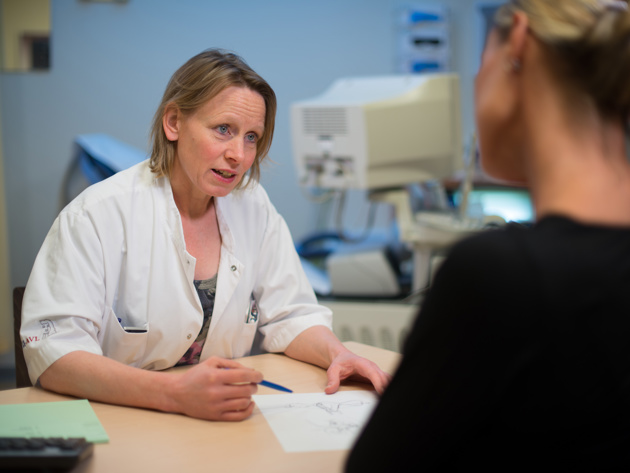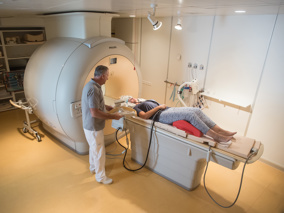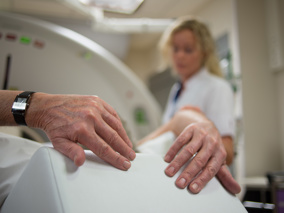Cancer during pregnancy
Every year, about 200 pregnant women in the Netherlands get cancer.
Breast cancer is the most common. After that, lymphoma, cervical cancer and melanoma (skin cancer) are the most common.
Treatment is usually possible during pregnancy. Most babies are born healthy, even after treatment during pregnancy.
Learn more about cancer during pregnancy
Symptoms of cancer during pregnancy
The symptoms of cancer sometimes resemble ordinary pregnancy symptoms. As a result, the cancer is sometimes discovered later than in women who are not pregnant.
Below are complaints that are also common during pregnancy.
Changes to the breasts
During pregnancy and breastfeeding, your breasts often feel different. A lump or other change may occur. Sometimes this fits with breast cancer. Because the distinction can be quite difficult, breast cancer is sometimes diagnosed later.
Is there blood coming out of your nipple during pregnancy? Then always go to the doctor.
Blood from the vagina
Some women lose blood from the vagina during pregnancy. Usually this is harmless. But sometimes it is due to cancer from the cervix. Do you have blood loss? Then report this to your midwife or gynaecologist.
Fatigue and shortness of breath
Cancer can cause fatigue or shortness of breath. These complaints also occur during pregnancy.
Birthmarks
Some women develop new moles when they are pregnant. Or existing moles become larger. Do you see a change in shape or color or is the mole itchy? Then go to the doctor. He can refer you to a skin doctor (dermatologist). This way you can be sure that it is not melanoma.
Problems with defecation
Many women suffer from constipation or hemorrhoids during pregnancy. These are also symptoms of colon cancer, but that is rare.
Do you continue to have complaints? Is there blood in your stool? Is a treatment not working or are the symptoms getting worse? Then discuss this with your gynaecologist or midwife.
Sometimes cancer is detected earlier by pregnancy. During a blood test (NIPT) or an ultrasound, the doctor sometimes sees something that may indicate cancer. The doctor can also detect cancer during gynecological examination or an ultrasound.
Outlook (forecast)
Can you receive the same treatment during your pregnancy as if you were not pregnant? Then the chance of recovery is usually the same. That is why it is often better to start treatment during pregnancy and not wait until after delivery.
Cancer Treatment During Pregnancy
Treatment is usually possible during pregnancy. Sometimes you have to postpone or adjust the treatment. The treatment team will work with you to choose what is best.
The team looks at:
- The number of weeks you are pregnant
- What type of cancer you have
- What stage the cancer is at
- The standard treatment you would receive if you were not pregnant
- The purpose of the treatment
If you can get the same treatment as someone who is not pregnant, then that's best. Sometimes the treatment has to be adjusted or postponed because of the pregnancy.
 nl
nl






